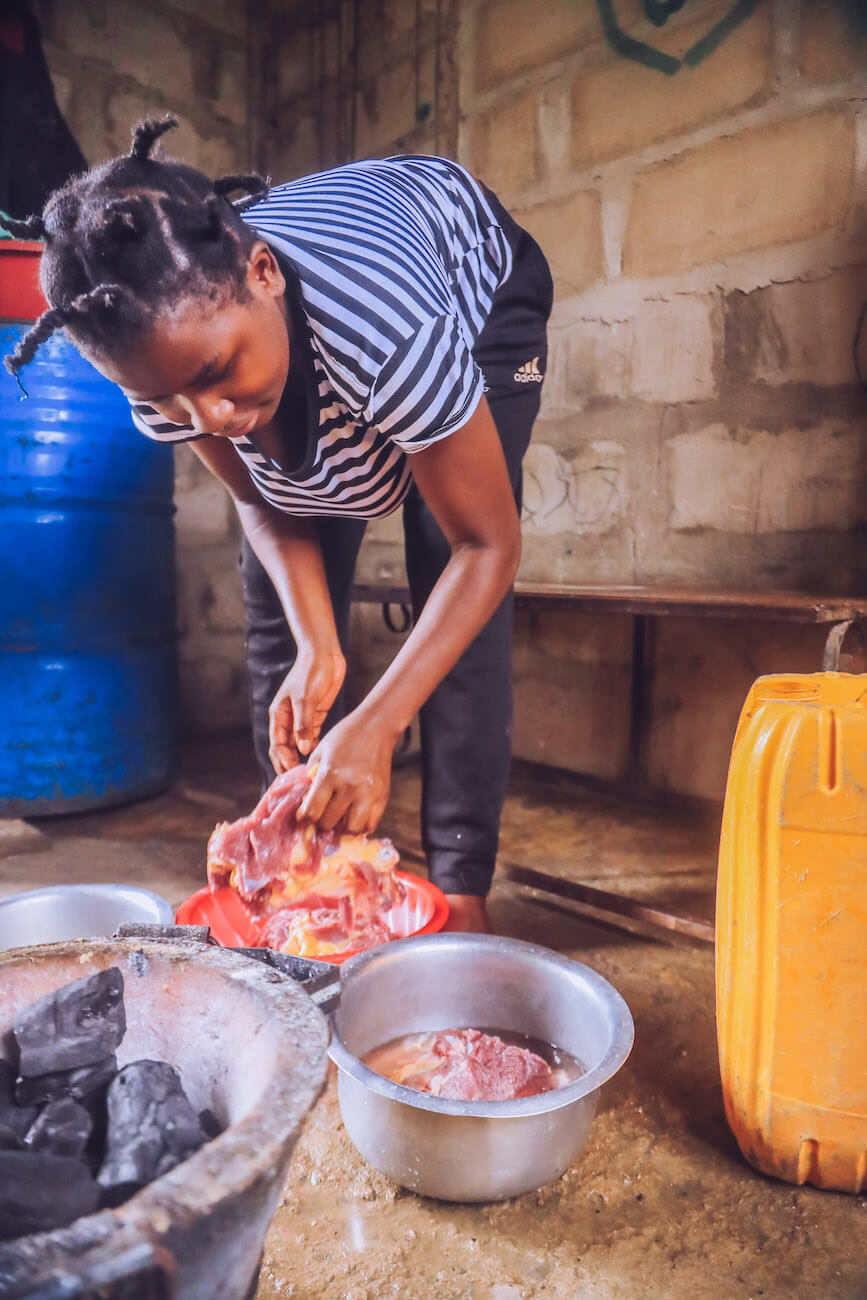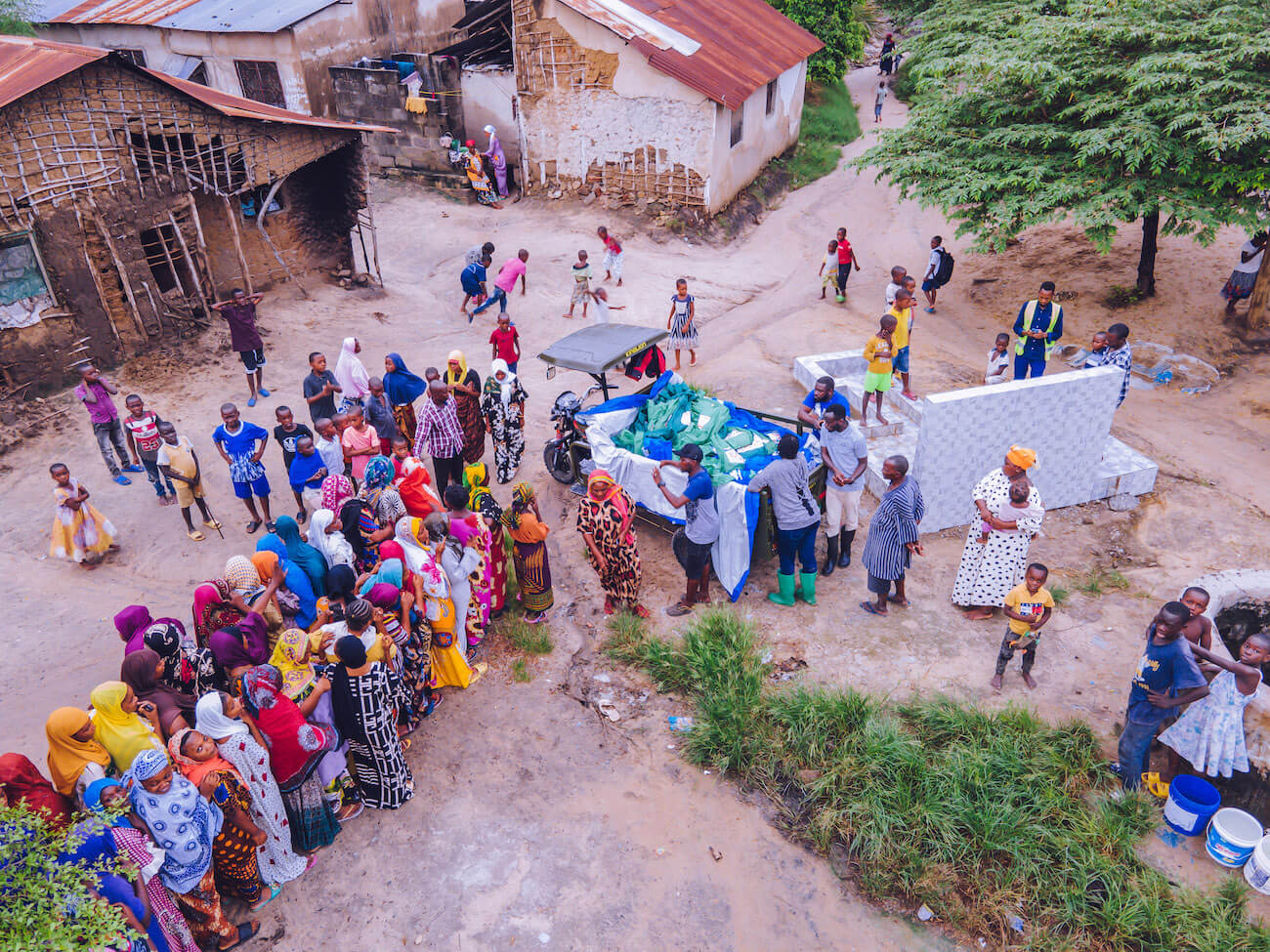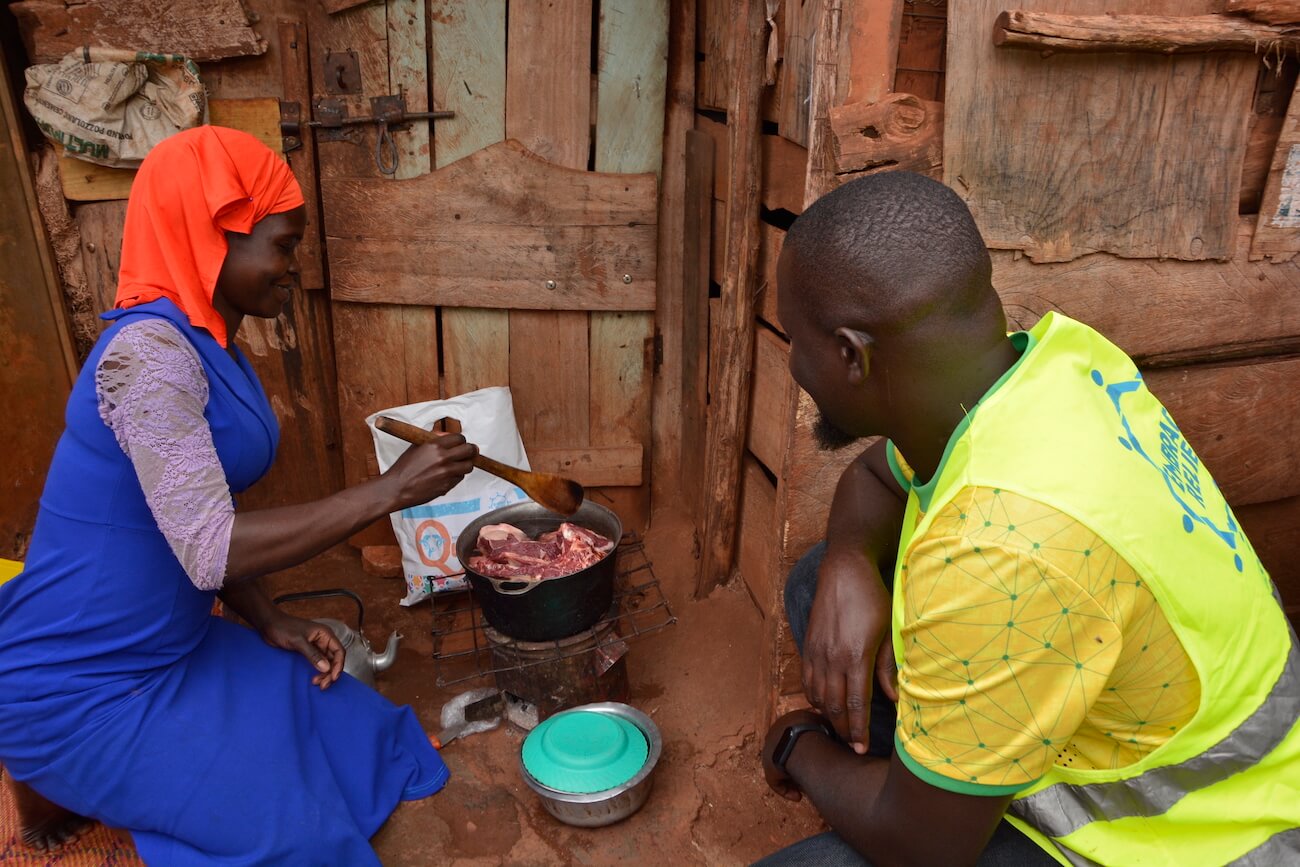Summary
- Sub-Saharan Africa is one of the regions of the world hardest hit by chronic hunger.
- How does this hunger impact the lives of people in Africa, especially women and children?
- Learn how you can make an impact on hunger in Africa by giving to Embrace Relief’s International Hunger Relief: Qurbani 2024 campaign.
Sub-Saharan Africa is facing a severe hunger crisis, a pressing issue that has reached alarming levels. According to the UN World Food Programme (WFP), millions of people in this region are grappling with food insecurity, malnutrition, and hunger, with dire consequences for individuals, communities, and economies. This crisis is exacerbated by various factors including conflict, climate change, economic instability, and the COVID-19 pandemic. Hunger statistics show that over 140 million people in this region are facing “acute” food insecurity – meaning the inability to consume adequate food to maintain a healthy body function – with many countries experiencing alarming levels of hunger.
Climate change has also played a significant role in worsening the hunger crisis. Erratic weather patterns, prolonged droughts, and devastating floods have destroyed crops, reduced harvests, and wiped out livestock. For example, in the Sahel region, recurrent droughts have severely affected agricultural productivity, leading to chronic food shortages.
The Impact of Hunger on Communities in Africa
Hunger and malnutrition have far-reaching effects on individuals and communities. For children, the impact is particularly devastating. Half of all deaths of children under the age of 5 are linked to malnutrition. Meanwhile, malnutrition during the first five years of a child’s life can cause irreversible physical and cognitive damage, hindering not only their physical growth, but also their ability to learn and perform in school. This is a key factor in perpetual cycles of poverty and underdevelopment. The World Health Organization estimates that approximately 38 percent of children in sub-Saharan Africa are stunted, meaning their height is significantly less than the average for their age. Stunting is linked closely with a lack of childhood nutrition.
For adults, prolonged hunger and malnutrition weaken the immune system, increasing vulnerability to diseases. In regions with high prevalence of diseases like HIV or waterborne diseases like cholera and typhoid, food insecurity further complicates these health challenges, as malnutrition can accelerate the progression of the disease and reduce the effectiveness of treatment. Communities facing chronic hunger often experience reduced economic productivity. Farmers, who make up a significant portion of the workforce in sub-Saharan Africa, are particularly affected. Without adequate nutrition, they lack the energy and strength to work their fields, leading to lower agricultural output and income. This creates a vicious cycle where food insecurity leads to decreased productivity, which in turn exacerbates hunger and poverty.

Addressing the Hunger Crisis: A Long-Term Effort
Addressing the hunger crisis in sub-Saharan Africa requires a comprehensive and multifaceted approach that tackles both immediate needs and long-term solutions. Immediate relief efforts should focus on providing emergency food assistance to the most vulnerable populations. This includes distributing food supplies, implementing cash transfer programs, and ensuring that nutritional needs are met, particularly for children and pregnant women.
In the longer term, building resilience within communities is essential. Enhancing agricultural productivity is a critical component of this strategy. Farmers need access to improved seeds, modern farming equipment, and training on sustainable agricultural practices. Developing and promoting drought-resistant crops can help mitigate the impacts of climate change, which has significantly affected food production in the region.
Improving infrastructure, such as roads and storage facilities, is also crucial for reducing post-harvest losses and ensuring that food can be efficiently transported from farms to markets. Additionally, strengthening local markets and supply chains can help stabilize food prices and improve food availability.
Ensuring food access for children is paramount, as well. School feeding programs not only provide essential nutrition to children but also encourage attendance, contributing to human capital development. Empowering women through education and economic opportunities can have a significant impact, as women often play a central role in household food security.
Finally, fostering political stability and addressing conflicts are fundamental to creating an environment where long-term food security can be achieved. Collaborative efforts that involve local communities, governments, and international partners are necessary to implement these strategies effectively and ensure sustainable progress in combating hunger in sub-Saharan Africa.

Give your Qurbani and help feed the hungry in Sub-Saharan Africa
At Embrace Relief, we recognize the impact that can be made when food is delivered directly to those who need it. That’s why, as part of our International Hunger Relief: Qurbani 2024 campaign, we plan to deliver nutritious meat packages to families in several sub-Saharan African countries, including Tanzania, Uganda, Kenya, Mali, and Burkina Faso.
For each $110 Qurbani share you donate, you will provide enough meat to serve seven families for up to two weeks’ worth of meals. It is a special opportunity to create happiness and fulfillment in communities across sub-Saharan Africa.
In 2023, the generosity of donors like you allowed Embrace Relief to distribute Qurbani meat packages to more than 122,000 people in 19 countries across five continents. For the many families worldwide who struggle to afford nutritious food, this program represents a beacon of hope and support. We’re aiming to expand our impact in 2024 – but we can’t do it without your help.
Give your Qurbani today with Embrace Relief by using the donation box below, and help us deliver food and spread hope to our friends across Africa.
Give Qurbani With Embrace Relief

In 2024, Qurbani will occur on June 16-19. During this time, sheep, goats, and cattle are humanely and hygienically sacrificed in adherence with common dietary restrictions. At this important time of year, join Embrace Relief and provide food for people in need in Africa (including the countries of Tanzania, Kenya, Uganda, Mali, Ethiopia, Burkina Faso, and Democratic Republic of Congo), as well as Yemen, Greece, and the United States, by donating to Embrace Relief’s International Hunger Relief: Qurbani 2024 campaign.





















